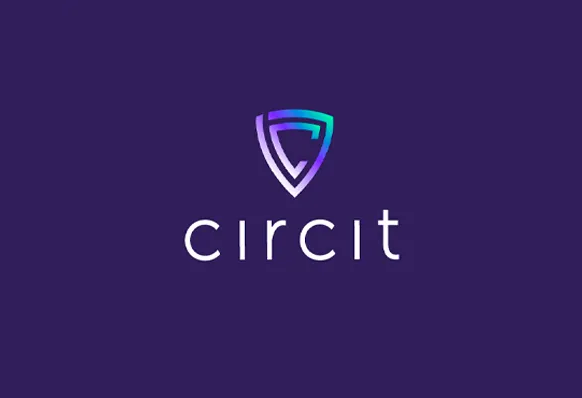From the January 2006 Tax Season Survival Guide
The professional service trades have a long history of relationship networking and have often utilized the power of community to get new
clients, to meet more prospects and to generally market their services, but there is more to be accomplished. In today’s fast-paced world of technology and regulation change, leveraging resources to stay current and to solve problems as quickly as possible is a huge positive for the customer and for the vendor.
“You can get a more in-depth response and sometimes a quicker answer by posting to a virtual forum that is specific to a software product,” says Barry Picker CPA/PFS, CFP, a Partner at Picker & Weinberg, CPAs, P.C and an active participant of the Lacerte User’s Group Virtual forum (LTUG). The virtual forums can give you more perspective and more depth because of the many voices. What is fascinating, however, is that more vendors and more practitioners have not mastered (to the highest level possible) community resources for their firms and customers.
Consider that even the biggest vendors in the world often struggle with how to master the balance of what they offer. “The best information does not come from the top down, but rather horizontally from peers and colleagues. Firms should empower ‘community communication,’ as ideas and knowledge can come from many sources,” says Susan Bradley, CPA.CITP, MCP, GSEC, a
Principal of Tamiyasu, Smith, Horn and Braun.
One user points out an issue with forums in her quote about the noise level within any particular group. “When it comes to participating in the
virtual communities, I find that the forums have to offer continued value and not get sidetracked with a lot of venting and complaining. My time is extremely valuable, and when I need answers with regards to a specific product, I find that technical support is usually the best path for the firm,” says Teri Abbott, Network Administrator at Stambaugh Ness, PC. The noise level of a virtual forum can be controlled by the moderator and policy statements. The noise level of a user group meeting or seminar is usually controlled by the speakers, but too much control can also be a problem. Too much control hampers the debate and the free flow of knowledge sharing. Let’s take a look at how a few of the vendors serving the accounting and consulting firm niche approach community.
Intuit, a large well-known vendor, often struggles with training its customers to utilize the available resources. However, Intuit seems to have mastered many of the customer service issues on the client level with its QuickBooks product that seem to escape other large vendors. When it comes to a best practice model for customer service, Intuit’s QuickBooks product is to the large software vendor niche as Southwest Airlines is to the airline industry.
The people at Intuit “get it” and “have it” when it comes to end-user client resources. They have figured out a successful model that works even with some complaints. However, when it comes to supporting the products that its advisors depend on such as Lacerte and ProSeries, Intuit falls right back down to the same level as most
of its competitors. The vendor utilizes a strong usability lab, focus groups and a customer e-newsletter for QuickBooks, and these resources always include customer quotes and real stories. But the technologies don’t necessarily apply
to their accountant-specific products.
Intuit does have a virtual community for Lacerte users at LTUG@yahoogroups.com, but this community was set up independently on Yahoo! Groups. As well, CCH’s ProSystem fx customers have the ProFX group at Profx@yahoogroups.com. These independent communities were created by customers for customers. Despite the independence of these groups, both vendors stay involved and keep an ear in the community buzz in case they can help, but they have yet to apply all the resources they could.
Rich Walker, director of Accountant relations at Intuit stresses that “Accountants are the key to helping small businesses manage their finances, so we’re doubling down on our efforts to give accountants the level of service and
support they demand and deserve.” And Intuit did prove its commitment when they heard the complaints from accountants about last year’s outsourced Lacerte technical services. “We want to send a clear message that no one is more committed than Intuit when it comes to giving accountants the tools and backing they need to be successful with their clients,” said Walker. The outsourced technical support services were brought back into the United States. Was this simply because the service was not up to the standard quality expected from customers or did the accountant community’s voice make a huge difference? I would venture to say that the opinion of the accountant does matter to Intuit!
CPASoftware, a Florida company with a particular strong practice management software package (and acquired by Sage Software a few years back) has not suffered from the acquisition, but has instead continued to improve the product while retaining its connections to its customer base. This is not always true when the whale swallows the fish, and some resources were eliminated around its community that should be added back. For instance, the CPASoftware National User Conference was cancelled and bundled into the more global Insights Conference. The transition was fairly smooth despite the fact that Sage Software also owns Timeslips, Timesheet Professional and Carpe Diem, which some would consider competing products.
Similarly to Intuit and now Microsoft Business Solutions, Sage Software also offers an Accountants Network (www.sageaccountantsnetwork.com) with multiple layers of advisor recognition. One item often missing from many vendor web sites (other than Microsoft’s) is a link to the user community. I found with Sage that sales information was readily available, but to dig in to support or community resources required membership.
CCH, another well-known vendor within the accounting firm niche, took a huge step this fall by launching the first CCH National Conference. The Phoenix conference drew in excess of 350 attendees — quite a success for a first-year event. Coincidentally, the CCH event immediately followed its main competitor’s, Thomson Creative Solutions. Also held in Phoenix, the CSI event (its 25th) drew almost 700 people.
Microsoft gains from integrated communities of peer-to-peer support because each entity has a large overhead, and multitude upon multitude of departments and departments have specific initiatives. One of the biggest issues for the smaller Microsoft customers is getting the right support at the right level quickly without spending too much money. Microsoft peer-to-peer communities and hosted knowledgebases can offer instantaneous solutions to those who are tied in and also to those who know where to look. But how do you find out where to look?
“The areas of our consulting practice that have benefited the most from our increased participation in the Microsoft Partner program are perhaps the last places we expected to see major improvements — marketing and practice management,” says Christopher Rue, CCNA, MCSE, MCNE, and Director of Technology Consulting at JMF Consulting, Inc. For those wanting to utilize these resources, it is not a matter of whether or not they are available; it is more a matter of where they are, which one(s) should be explored and how does the customer participate. Microsoft also has some incredible videos available on its web sites that help train customers on how to utilize certain features, how to master certain processes, and even sales and marketing training. But again, you have to find the videos and content.
You could also argue that for every QuickBooks advisor there is a Technology Consultant available to help with the Microsoft software. Microsoft has shifted its focus and attention to the small and medium-sized business niche, and its brand new Small Business Specialist credentials have helped Rue’s consulting firm really make a difference. “Within a week of being introduced to the Small Business Server community, our CPA firm found information in that community’s
massive pool of real-world knowledge that would have reduced our non-chargeable time on several recently completed jobs by up to 50 percent,” says Rue.
NetSuite is a less traditional accounting software vendor, given that its product is a hosted solution. But accountants are starting to leverage hosted solutions to allow for easy access to their clients’ data. Intuit’s QuickBooks Online Edition has definitely proven the interest in hosted options with its growth statistics. “At NetSuite, we are always looking at new ways to create virtual communities for sharing and support, including online user groups with e-mail and RSS feeds and blogging,” noted Justin Foster, VP of Support and Professional Services at NetSuite. NetSuite has a corporate
culture that understands the power of community, but I would venture to say that they are ramping up. It takes a lot of manpower and human resource hours to have hundreds of video training, a deep knowledgebase of FAQs, local and national user group meetings, and multiple virtual communities.
TaxWise has taken training and customer support to a whole different level with its “TaxWise TV.” Now, not only can customers learn a software product through the standard format, but they can also get in the habit of watching “TaxWise TV” to stay current on new features or to better maximize the resources and features already available in the software. When “TaxWise TV” was released, the demand on technical services plummeted! It won’t be long until practitioners can watch “TaxWise TV” on their wrists. We must also appreciate that TaxWise makes available to customers extensive training manuals that are used to teach its many classes so that accountants can learn at their own pace.
Thomson Creative Solutions is one vendor that has utilized and mastered the online user group community with thousands of interactions among its members and customers. Its community, called ARNE2, is also packed with historical information that can be searched and sorted. CSI understands the power of peer-to-peer knowledge sharing. The vendor has also started offering current product technology options for news distribution and enabled Rich Site Syndicated (RSS) feeds of information from its web site. RSS feeds allow accountants to have direct control over the information being fed into their aggregated news list or e-mail system. This is very different than an e-newsletter, where the control of the distribution resides with the writer of the e-newsletter.
ATX is one vendor that actually lists the ATX Community on its web site, emphasizing how important this is to the vendor’s clients and new prospects. Not only do they mention the ATX Community, but they have an entire web site at www.atxers.com dedicated to making sure customers, prospects and the casual observer can find the information for which they are looking with regards to understanding the culture of the firm and the products. A link to their web log (Blog), a link to the community forums, a link to the ATX Library, the ATX download center, eFile Center and the ATX Support center sums up the ATX community web site nicely. Congratulations to ATX for making it so easy to get to all of these options, including the individual subject-specific discussions.
You could also easily discover that the forums were threaded and current. Additionally, a few of the forums were open and immediately available while others required registration, which is generally considered standard format from those who have hosted and offered virtual forums. Whether you’ve purchased ATX products or not, you can join the ATXers Community, participate in its discussion groups, and take advantage of the tax and accounting information posted on the ATXers Community site. To join, click Sign Up, and you’ll be asked a few questions and then be welcomed to the ATX Community.
AccountantsWorld could be the masters of community. But do they live up to their very core focus of “cultivating a community of independent accountants that fosters a partnership of mutual benefit for its members?” They certainly live up to this commitment with their extensive knowledgebase of articles on specific accountant subject matter, and they do offer community tools for discussion. But I could not find more than 150 or so messages posted in the forums as compared to CSI’s thousands of discussion threads on ARNE2. Is it possible that the tax and accounting professionals of the world have not discovered the power of sharing information? Or perhaps the format for sharing needs to be in a different model. Is it possible that the risk to post is too high?
The AICPA has incredible information available on its web site in addition to three forums that offer community discussions. These forums include the Technology (IT) Section Forum, The Certified Information Technology Professional Forum (CITP) and the brand new Business and Industry Forum. Despite the hundreds of recognized technically certified CPAs who are also CITP’ers and/or members of the IT Section, the forums are very quiet. This is a shift from the former CITP Yahoo! group that was started in 1999 (located at CITPTalk@
yahoogroups.com).
The Yahoo! group was phased out in 2003 to support the new AICPA’s toolset for community. The newest business and industry forum has been announced, but there have only been a few messages posted, and the CITP Forum and IT Section Forum include only a small percentage of the membership participating. This is despite a huge amount of effort invested on the part of the CITP Committee members. But what is missing? “In general, for communities to grow, prosper and be valuable, you have to enable communication. You can’t make the entrance boundaries too high. Communication has to push out and allow for easy responds,” said Bradley.
I can’t agree with Ms. Bradley more.
Measuring the impact of community involvement is not as easy as counting the number of new clients or the number of posts in a forum. Community is as much about word of mouth as it is about simply helping customers get the most out of what they have purchased. Mr. Picker summed it up well: “Virtual forums are a great place to learn about shortcuts. I have often posted a comment such as ‘I really wish I could do this,’ only to find that another user has a solution.”
It is sometimes hard to appreciate available information when you’re in information overload, but we can depend on our peers and community to help sort through and filter those resources that are most needed in the time frame available. “Forums have been an invaluable resource for me. I’ve gained some excellent networking contacts, which have helped to promote our business. And I’ve also found some very good information on technology issues that was helpful to my ongoing development,” said Ray Muth, CPA.CITP, CISSP, President of BankLogic, Inc. in Gibsona, Penn.
———————————-
Anne Stanton, president and CEO of The Norwich Group (www.thenorwichgroup.com), has spent years consulting, analyzing and helping accounting, technology and consulting firms of all sizes. Passionate about small business and technology, she continues to streamline procedures, maximize profit, document patterns and expand services for best practicing companies across the country.
———————————-
Back to the 2006 Tax Season Survival Guide
Thanks for reading CPA Practice Advisor!
Subscribe Already registered? Log In
Need more information? Read the FAQs



